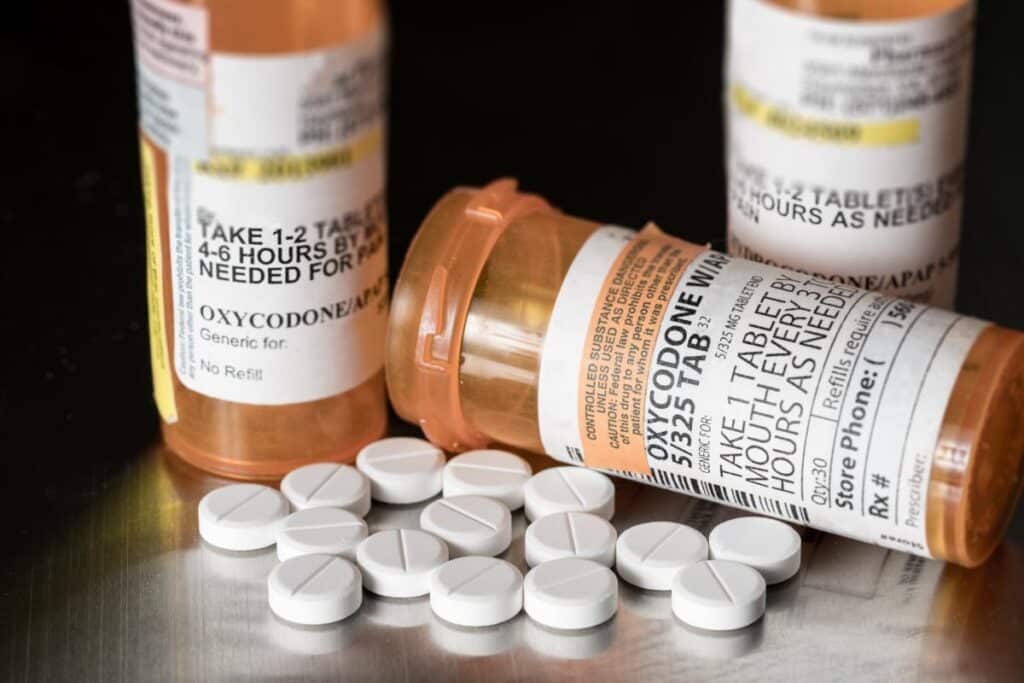Millions of Americans every year are prescribed opiates to help deal with a range of ailments, typically pain-related. While many people take these medications safely and as directed, some suffer from abuse of these prescriptions. In fact, some people may not even realize they are abusing their medications. This is especially true for people who never knew they may be at risk of developing an addiction. People tend to think prescription opiates are completely safe because they are prescribed by a doctor. However, there are many risks and side effects, including the risk of developing an addiction to these medications. For this reason, it is important to know what characterizes prescription drug abuse, the signs of opiate abuse, and which opiates are commonly abused.
If you or a loved one are in need of opiate addiction treatment, Swift River can help. Reach out to us at 413.570.9698 today.
What Is Prescription Drug Abuse?
When people begin taking their medications for reasons not prescribed, this is defined as abuse. However, some individuals may not realize they are abusing prescriptions—a person in great pain may feel desperate and seek a higher or more frequent dosage to stop the pain—yet this puts the person at higher risk of addiction. The following guidelines may be useful for recognizing prescription drug abuse:
- If a person takes drugs for reasons other than prescribed, such as experiencing a “high”
- If someone takes medication that was prescribed to someone else
- If a person takes more of a prescription than prescribed
- If a person takes a medication more frequently and in larger doses than prescribed
- Changes to the method of administration (such as snorting or injecting to achieve faster effects)
Again, because prescriptions are prescribed by doctors, the dangers of abuse may not be readily apparent. But people taking prescription opiates should be wary of taking higher or more frequent doses to alleviate pain. Those who may be concerned about abuse should always consult their physician before making any changes to their dose or frequency.
What Are the Most Commonly Abused Prescription Opiates?
So why do people abuse these drugs if they can be harmful or addictive? Not everyone who falls victim to drug abuse knows they will become addicted. In fact, it is usually quite the opposite, especially for people who are taking prescriptions. At any given time, there are at least 15 opiates available for prescription. It can be hard to keep track of which may be highly addictive. However, some have a higher potential for abuse than others, which puts them on a list of commonly abused prescription opioids. These include:
- Codeine
- Fentanyl (Duragesic)
- Hydrocodone (Vicodin)
- Morphine (Avinza, Kadian, MS Contin)
- Oxycodone (OxyContin, Percocet)
- Oxymorphone (Opana)
- Propoxyphene (Darvon)
- Hydromorphone (Dilaudid)
- Meperidine (Demerol)
- Diphenoxylate (Lomotil)
Codeine and morphine, like many opiates, are drugs prescribed to dull pain. Yet, when taken in high doses or too frequently, these drugs can be very dangerous. A commonly prescribed opiate, oxycodone, in the form of OxyContin or Percocet, is well-known for the prior ease of access with the prescription pill form—people tended to crush and snort the drug, seeking an immediate high; however, recent changes to the drug’s formulation have made this abuse more difficult. Taking opiates in high doses and changing the method of administration is precisely what makes them potentially harmful. Opioids have high levels of potency; they are designed to work slowly and strongly over time. When a person increases the release rate of the drug or increases the dose or amount of times they take it, that person is at greater risk of opioid overdose. In addition to the heightened risk of overdose, abusing opiates may produce a number of adverse side effects. These may include the following:
- Clamminess of the skin
- Confusion
- Constipation
- Decreased pulse and/or blood pressure
- Drowsiness
- Dizziness
- Dry mouth
- Feeling of weakness
- Increased sweating
- Itchy feeling
- Lack or loss of coordination
- Loss of consciousness (fainting)
- Nausea
- In extreme cases, coma or even death
How to Help Someone Suffering from Prescription Opiate Abuse
Opiate abuse is particularly dangerous in that it can lead to further abuse of other opiates, such as heroin. The National Institute on Drug Abuse (NIDA) explains, “The current epidemic of prescription opioid abuse has led to increased abuse of heroin, which presents similar dangers.” Rather than waiting until abuse becomes a problem that plagues someone for life, it may be best to seek help for someone suffering before it is too late. The best way to help someone recover from prescription opiate abuse or addiction is comprehensive opiate addiction treatment. For those who have been affected by long-term abuse or whose addiction is severe, an inpatient stay at a rehab facility may be the best situation for their recovery. Rehab facilities allow patients to heal first through drug detox, cleansing the body of harsh chemicals, then through assisted living in a supportive environment. Recovering individuals receive daily care and help with medication, therapy, and counseling. In some facilities, treatment may even be tailored to individual needs. Wherever you or your loved one decide to go for treatment, inpatient rehab centers can help you on the way to recovery.
Begin Recovery Today at Swift River
The use of prescription opiates has become an epidemic for which we are still seeking a cure—but it doesn’t have to be something you continue to contend with. If you or someone close to you is struggling with substance abuse, you do not have to face recovery alone. Contact us today at 413.570.9698 to hear about your options and to speak to an expert about our Massachusetts drug rehab.












